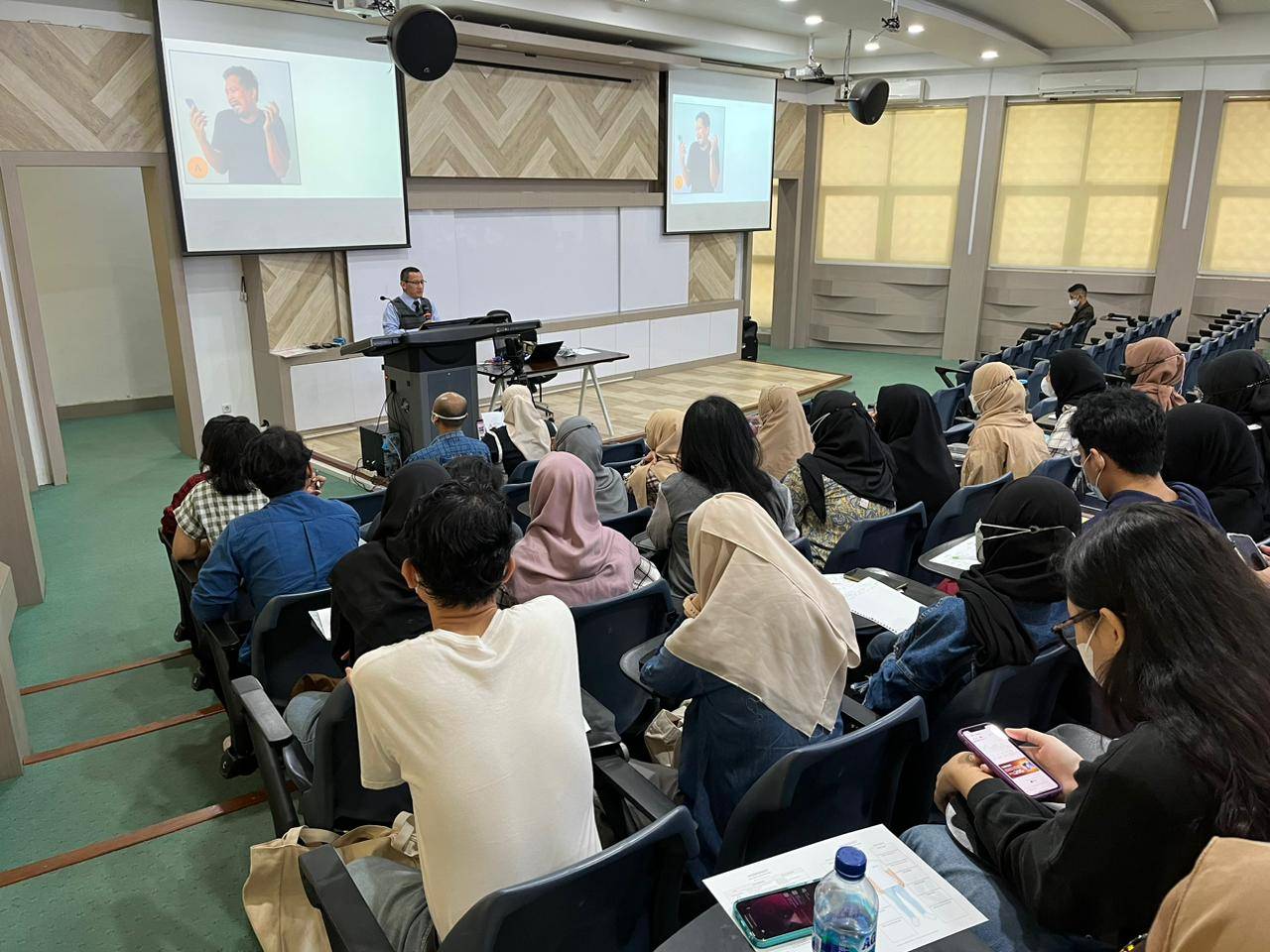The CEO of Kang Aviv Institute, Syibly Avivy Achmad Mulachela, presented as a guest lecturer in the Business Communication and Negotiation course at SBM-ITB on Monday (3/10/22). Kang Aviv, a psychologist and graphologist presented material on verbal and non-verbal communication in business and negotiation.
“Most people think the benefit of studying non-verbal communication is understanding someone’s behavior. However, at this meeting, we will go one step further than just knowing this,” was the opening sentence that was delivered by Kang Aviv when he started his lecture session on Monday (3/10/22).
 Simply Avivy, commonly called Kang Aviv, is a psychologist, graphologist, and CEO of the Kang Aviv Institute, an institution providing courses and coaching to teachers related to psychology. With his experience, he became an expert in the fields of business psychology, teaching, as well as communication.
Simply Avivy, commonly called Kang Aviv, is a psychologist, graphologist, and CEO of the Kang Aviv Institute, an institution providing courses and coaching to teachers related to psychology. With his experience, he became an expert in the fields of business psychology, teaching, as well as communication.
Kang Aviv said that non-verbal communication also needs to be considered apart from verbal communication. Non-verbal communication plays a role in 93% of a person’s communication (55% of gestures, 35% of voice intonation and 7% of verbal communication).
Verbal communication is a form of communication that directly uses words as an intermediary. In comparison, non-verbal communication is a form of communication without using words, which can be voice intonation, body gestures, facial expressions, appearance, and others.
“To be successful in negotiations, we not only need to understand other people’s communication but also have to practice it on ourselves,” explains Aviv.
Non-verbal communication can also be formed and trained. For example, by making ourselves smile and laugh, our nature will also be cheerful. Vice versa.
At the end of the session, Kang Aviv also gave some tips to facilitate the negotiation process, such as smiling, introducing yourself first, making eye contact, having an open posture, shaking hands firmly, being a good listener, and other things. With this knowledge, students are expected to better understand and practice good communication in the future, especially in business communication.




